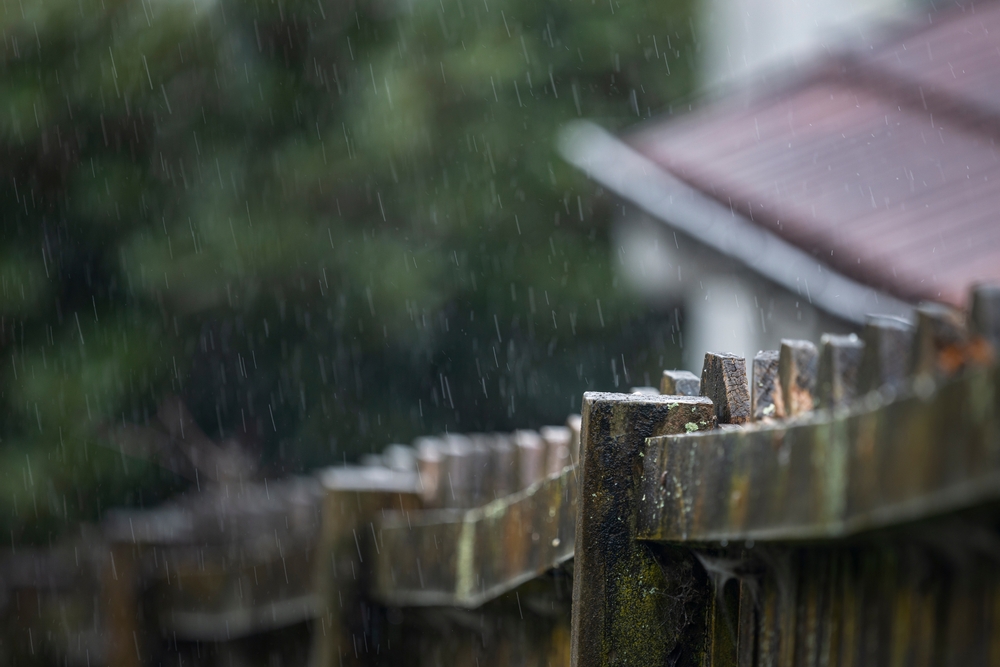A high quality garden fence can transform the look of a garden, as well as adding that little bit more security to your home. Like all things we invest in, it’s important to take care of your garden fence and one way you can do that is by preventing any damage to it from the rain, as well as the other elements. This article was published on lawsons.co.uk and looks at ways you can protect your garden fence from rain damage…
Invest in Pressure Treated Wooden Fences
Timber has been used outdoors for millennia – it’s an eco-friendly, durable, and versatile material that has been used for fencing. However, wood can succumb to moisture and rot if not properly maintained. Treat your outdoor wood products, such as fencing, to ensure that it looks its best and stays strong for as long as possible.
Pressure treatment forces preservatives into the timber under a lot of pressure to ensure that it penetrates the grain properly. The timber is placed in a vacuum after the preservatives have been applied, and the wood is then subjected to high pressure.
This treatment is effective against insects and fungal decay, which means that you do not need to worry about holes and weak points in your wood until it’s time for your annual maintenance.
Install Post Caps
When exposed to rainy conditions, the timber posts end grain are the most vulnerable. The tops of the post will absorb all the water rather than the whole post, which leads to mildew, mould and eventually cause your post to rot. By installing a fence post cap, most issues caused to fence posts by the weather can be resolved as these protect the post from weathering. By including a post cap, you are also extending the life of your fencing, making it safer and prettier.
Install a Gravel Board
After it has rained for a few hours or days, the ground will be left damp and in a few areas, it may be flooded. Wet soil which may touch your fence can cause it to rot. This can be prevented by installing a gravel board to protect your panels. It is essential for you to install a gravel board as part of your fence installation because it acts as a barrier between your fence and the wet soil and protects your fence from moisture damage from the wet ground, debris and insect damage. Also opting for a concrete gravel board to help to protect your timber fence from prolonged exposure to water. Concrete is an ideal material for gravel boards, since it is strong and does not rot. While it does contrast with closeboard or lap panel fences, you can team concrete gravel boards with concrete fence posts to create a strong, secure, and low maintenance fence for your home or business premises.
Set Your Fence Posts
When you set your fence posts, always think about installation on good locations and good ground conditions. Ask yourself if this location and ground is prone to flooding or getting too muddy after a rainfall. If this is unavoidable, then ensure you set your fence posts at least 2ft (600mm) in the ground. Where the ground is muddy, insert a few stones around the post to achieve a denser ground composition and help post stability. For drainage, you could add gravel at the bottom of the post and use a lot of post mix to set your posts firmly in the ground. By setting your posts correctly in the ground, this will help them withstand and better survive the muddier ground conditions when it rains.
An alternative to using timber fence posts is opting for a concrete fence post which eliminates any chances of rotting due to rain.
You can read the full article on lawsons.co.uk.
Does your garden fence need protecting from the rain? Or perhaps your garden would benefit from a whole new fence? Either way, the team at Bernie’s Gardening Services can help – contact us today to find out more and for a free, no obligation quote.

